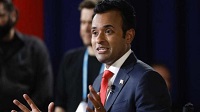2024:
The Election Deniers’ Playbook for 2024
“This analysis examines the role that election denial played during the midterms and makes an early assessment of how it will continue to evolve ahead of the 2024 election. It does so by outlining 14 tactics deployed by election deniers throughout the 2022 election cycle: (1) election deniers’ bids for office, (2) election deniers’ refusal to concede, (3) counties’ refusal to certify election results, (4) efforts to discredit voting machines, (5) efforts to tamper with sensitive voting data and equipment, (6) massive public records requests, (7) efforts to recruit election deniers to serve as poll watchers and workers, (8) threats against election officials and workers, (9) voter intimidation, (10) mass challenges, (11) election police forces, (12) anti-voter lawsuits, (13) anti-voter legislation, and (14) disinformation.”
“Tactic 1: Win control of election administration“
“Pushing false narratives of widespread election fraud, election deniers will continue to run for local and state offices that oversee elections.“
“Nevertheless, many other election-denying candidates won their races. In Alabama, Indiana, South Dakota, and Wyoming, election deniers now control statewide offices that oversee elections. In battleground states such as Nevada, they secured victories in local election offices in key jurisdictions, including Nye and Storey counties. And at the congressional level, after the midterms, the House now has at least 180 members who questioned or denied the 2020 election results, while the Senate has 17 such individuals.
These victories suggest that election deniers will continue running for office. A January 2023 internal report issued by the Republican National Committee warns of a “continuing onslaught of Democrat election manipulation,” including “unregulated drop boxes” and “vote collection vans.” The report proposes building a large new organization to counter this fabricated threat, signaling that election-denying candidates will have a more coordinated and sophisticated election denial campaign at their disposal in 2024.”
“Tactic 2: Refuse to concede electoral defeat“
“Election deniers will likely continue to protest their losses and file groundless lawsuits in an effort to raise their national profiles.“
“Tactic 3: Refuse to certify results“
“With election deniers on the ballot and newly in charge of local election offices, more local officials may refuse to certify elections in 2024.” (See Georgia below)
“Tactic 4: Discredit voting machines“
“Election deniers continue to claim that voting machines are susceptible to fraud and should be replaced by hand-counts.“
“Tactic 5: Tamper with sensitive voting data and equipment“
“Election deniers may continue their attempts to gain illegal access to voting equipment and data.“
“Tactic 6: Massive public records requests“
“Election deniers may repeat their attempt to overburden local election offices with an abusive volume of records requests and other forms of public access.“
“Tactic 7: Recruit election deniers to serve as poll workers and watchers“
“Efforts to install potentially disruptive individuals as poll workers and watchers will likely continue in 2024.“
“Tactic 8: Threaten election officials and workers“
“Election denial rhetoric continues to fuel threats of violence and other forms of retribution against those who administer elections.“
“Tactic 9: Intimidate voters“
“In a climate of election denial discourse, conspiracy theories, and reduced firearms regulations, voter intimidation remains a significant threat.“
“Tactic 10: File mass voter challenges“
“Election deniers may continue to file mass challenges in an effort to burden election offices and intimidate voters.“
“Tactic 11: Create election police forces“
“States continue to create and deploy election police forces in an effort to deter eligible voters from participating in elections.“
“Tactic 12: Use the courts to suppress votes“
“Election saboteurs and election deniers will likely continue to file lawsuits to limit the freedom to vote.“
“Tactic 13: Pass anti-voter legislation“
“Legislators continue to introduce measures aimed at reducing voter participation and interfering with election processes.“
“Tactic 14: Spread disinformation“
“Election deniers continue to spread false claims about elections.“
DeSantis planting the seed of doubt on how long it takes to count Mail-In Ballots
If he only knew the laws of each state when it comes to counting mail in ballots?
When states can begin processing and counting absentee/mail-in ballots, 2022
Florida? When can they opened? When can they be counted?
| Upon receipt. | Upon the completion of the public testing of automatic tabulating equipment (which begins not more than 25 days before early voting commences). Releasing the results early is a felony. |
Pennsylvania? When can they opened? When can they be counted?
| 7 a.m. on Election Day. | At 7 a.m. on Election Day, but the votes may not be recorded or published until after the polls close. |
See a huge difference? Florida counts theirs early. Pennsylvania has to wait.
Fact-checking false claims about Pennsylvania and the presidential election
“FACT: Counting and reporting votes slowly isn’t fraud
“They are finding Biden votes all over the place — in Pennsylvania, Wisconsin, and Michigan. So bad for our Country!”
Trump, in a tweet on Nov. 4, 2020On election night, Trump appeared to have a strong “lead” in Pennsylvania, and he expressed confidence he would win the state. He even wrongly “claimed” Pennsylvania’s Electoral College votes in a tweet before the race had been decided. But in the days ahead, as more mail ballots were processed and counted, Joe Biden pulled ahead and ultimately won the state by 81,000 votes, or about 1%.
The slow counting of mail ballots, and the way it eroded Trump’s early advantage, was the direct and expected result of Pennsylvania’s election rules — not fraud.
The counting process took longer than in other states because elections officials were prohibited from starting their work before Election Day.”
Wisconsin? When can they opened? When can they be counted?
| After the polls open on Election Day. | After the polls open on Election Day. |
Michigan? When can they opened? When can they be counted?
| Two days before election day.[3] | At 7 a.m. on Election Day. Anyone with access to absentee ballot counting must sign an oath that information related to processing and tallying will not be communicated in any way until after the polls close. |
Georgia?
A new rule in Georgia could allow local election boards to refuse to certify results
Georgia gives local officials new powers to investigate election results
“Trump cheered on the appointed officials who approved the rule change at a rally last weekend, calling them “pit bulls fighting for honesty.””
Election Deniers Secretly Pushed Rule That Would Make It Easier to Delay Certification of Georgia’s Election Results
“On Monday, the GOP-controlled State Election Board is poised to adopt the rule, which would potentially allow county officials, including one who secretly backed the rule, to throw the election results of the swing state into chaos this fall.”
In 2020 they tried Fake Electors. Some are going to jail!
The Big Lie – some of Trump’s attorneys are going to jail and others have been disbarred
Near Coup




